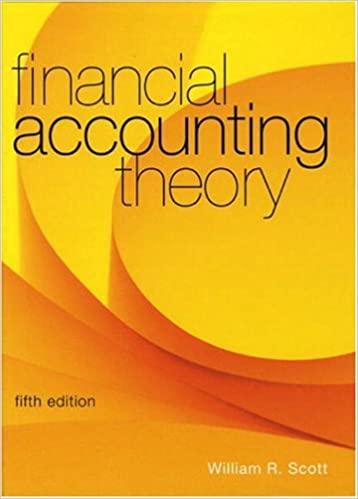On October 3, 2007, Deutsche Bank AG announced that it would record a write-down of EUR2. 2
Question:
On October 3, 2007, Deutsche Bank AG announced that it would record a write-down of EUR2.
2 billion. Most of the write-downs applied to its investments in asset-backed securities and related financial instruments, following from the August meltdown of the market for these investments. This write-downs materially reduced third quarter, 2007, earnings. At the same time, the Deutsche Bank CEO reaffirmed the company’s previous earnings guidance for 2008, which was for a profit of EUR8.
4 billion. However, he qualified this forecast with the comment that this assumed “normally functioning markets.”
Comments appeared in the financial press, following these announcements, about the difficulties faced by Deutsche Bank in determining the new fair value of these written-down investments, since market values were not readily available. Some comments suggested the possibility that the company was taking a bath, thereby creating a “cookie jar” that could be used to augment future earnings. Other commentators were concerned that the write downs may have been understated, rather than overstated, so as to disguise losses, and that further write-downs would likely follow. The company assured investors, however, that it had used “a rigorous process applying appropriate accounting principles.”
In the face of these events, the share price of Deutsche Bank rose2.
1% on October 3, compared with a rise of about0.
6% on that day for the Dow Jones Stoxx European banking index. On October 4, Deutsche Bank shares closed unchanged, compared with a0.
96 increase in the banking index.
Required
a. Give reasons why Deutsche Bank's share price rose on October3.
b. Give reasons why Deutsche Bank may want to take a bath.
c. Give reasons why Deutsche Bank may want to understate its write-down.
d . You are an auditor of Deutsche Bank. Prior to the write-downs, the bank suggests that the investments in question be reclassified from held-for-trading (their present classification under IAS 39) to held-to-maturity. What is your reaction to this suggestion Explain.
Step by Step Answer:






